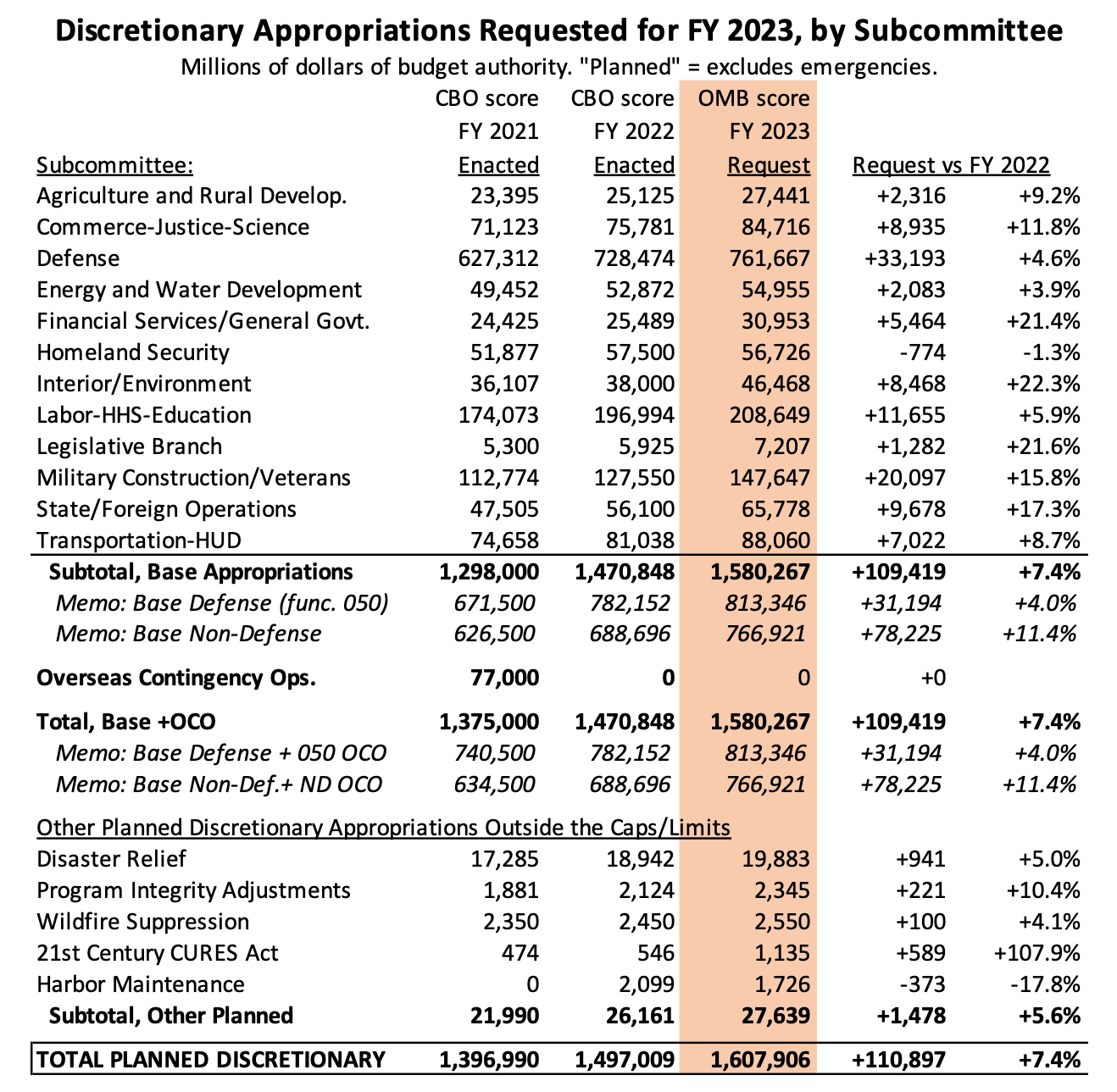The leaders of the House and Senate Appropriations Committees met yesterday to begin discussions of an overall total for the twelve regular appropriations bills for fiscal year 2023. A decision on a “topline” number is necessary before the total can be subdivided between the twelve bills and the House and Senate allowed to debate them.
The meeting between Senate Appropriations chairman Patrick Leahy (D-VT), his ranking minority member Richard Shelby (R-AL), House Appropriations chair Rosa DeLauro (D-CT) and her GOP counterpart Kay Granger (R-TX), was inconclusive and more meetings will be held the week after next.
But Leahy was quoted by Bloomberg after the meeting as saying “We want the new Congress, when it comes in, to have a clean slate. Senator Shelby and I, it won’t affect us, because we’ll be gone.” (Shelby and Leahy are retiring this year and will cease to be Senators on January 3, 2021.
Hampering the talks is the fact that the Congressional Budget Office has not yet finished its estimate of the real cost of the late-arriving budget request. All we have are the White House Office of Management and Budget’s estimates, which are usually several billion dollars off from CBO’s especially on the net total cost of the appropriation for the Department of Housing and Urban Development. (CBO and OMB estimates of offsetting fee collections from mortgage insurance are to blame.) Because HUD shares an appropriations subcommittee and a budget suballocation with the Department of Transportation, this matters for transportation stakeholders as well.
Per OMB, President Biden is requesting a $111 billion increase in total discretionary appropriations (including emergencies) for 2023 above the CBO score of the FY 2022 omnibus appropriations bill, as follows:

Even though the Budget Control Act’s caps on defense and non-defense appropriations have expired, negotiators will likely still strive for separate totals on defense and non-defense as part of an overall deal. Biden’s budget request would be a 4 percent increase over 2022. The non-defense increase, once augmented with the various cap adjustments and exclusions, would be an 11.1 percent increase over 2022.
Republicans are likely to demand that the percentage increase in defense be close to the percentage increase in non-defense appropriations, which would either require much bigger defense increases or much smaller non-defense increases than are in the Biden budget.
Another sore spot will be continued proposals to create a new cap work-around for funding the VA CHOICE Act, which is responsible for much of the $13 billion increase in the Military Construction/Veterans funding total from FY 2021 to 2022 and for the $20 billion increase in the request above 2022. VA CHOICE funding is projected to grow fast in future years, and appropriators would like to establish a precedent for funding it outside the normal process sooner rather than later.




